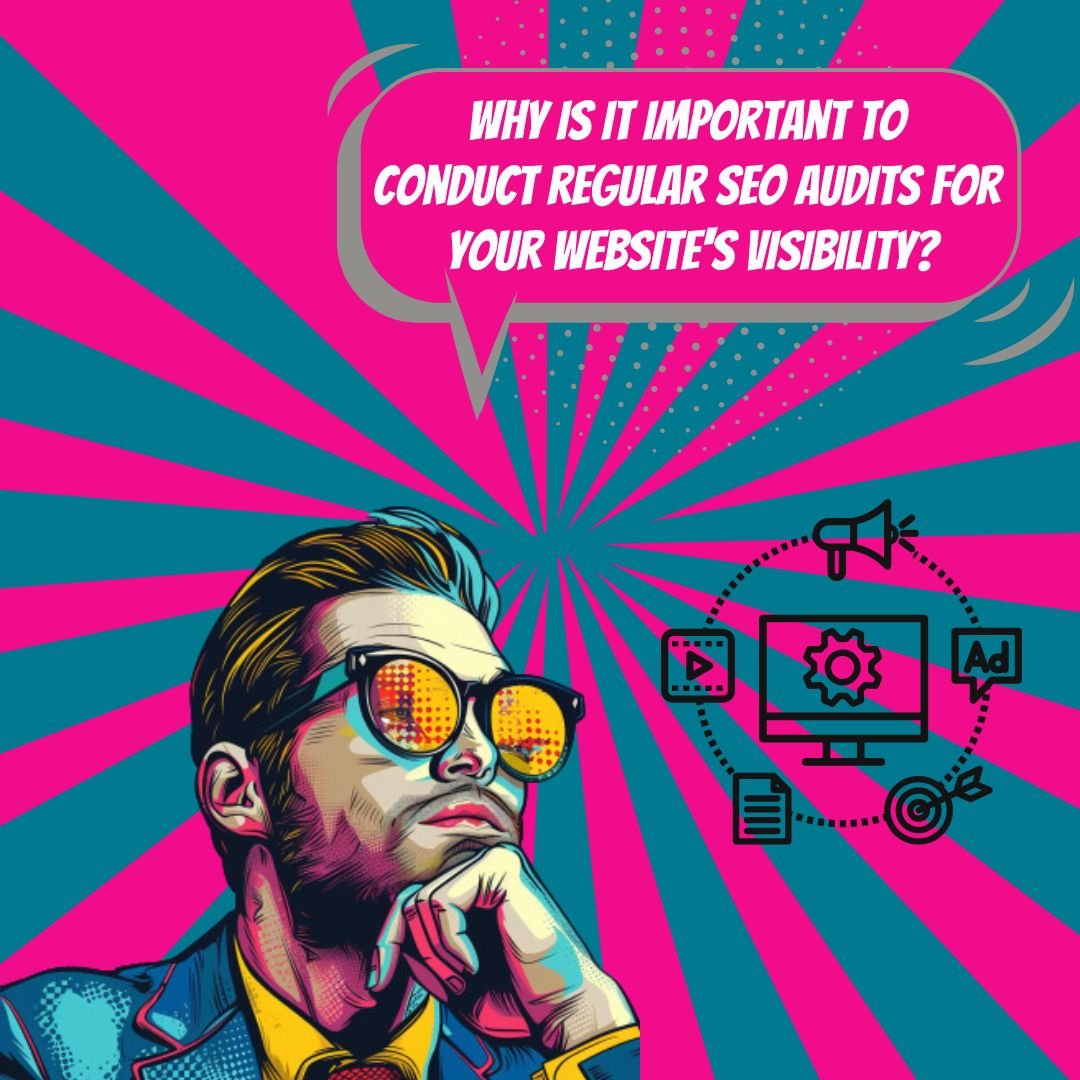Key Takeaways
✅ Improves Search Engine Rankings and Visibility: An SEO audit scours your website to find and fix issues hindering your search rankings. A staggering 93% of online experiences begin with a search engine, and SEO audits are crucial in ensuring you're not missing out on traffic due to avoidable oversights.
✅ Enhances User Experience and Performance: Did you know that a one-second delay in page response can result in a 7% reduction in conversions? An SEO audit scrutinizes elements like speed and mobile-friendliness to bolster user experience which, in turn, boosts your site's conversion rates.
✅ Provides Insights and Competitive Advantage: An audit doesn't just adjust your website's lens to introspect; it also lets you peek over the fence. You'll uncover what competitors might be doing better and take strategic steps to gain a competitive edge, considering that the top result in Google's search results has a 31.7% click-through rate.

Introduction
Is your website a needle in the expansive haystack of the online world? In a digital landscape where over 1.7 billion websites clamor for attention, standing out is crucial. What can tip the scales in your favor? The answer might lie within the data-driven analysis of an SEO audit – a strategy that could catapult your business to the forefront.
An SEO audit not only illuminates the technical snags dragging you behind but also polishes the aspects that can rocket your site's performance and user experience to stellar heights. We're talking about a meticulous assessment that opens doors to tangible improvements in your online visibility and credibility.
As you progress through this article, strap in to explore contemporary techniques and untapped strategies to not only survive but thrive online. We'll reveal game-changing insights optimizing your search engine rankings, and promise you actionable intelligence to give your online presence the jolt it needs. Ready to delve into the audit that could redefine the trajectory of your business? Let’s get started.

Top Statistics
| Statistic | Insight |
|---|---|
| Less than 1% of users reach the second page of search results | Having your site on the second page is almost like being invisible. A detailed SEO audit could reveal what’s holding your site back from the coveted first page. |
| Organic Clicks: 45.1% of desktop searches resulted in organic clicks in 2022. | Nearly half of all desktop searches lead to organic clicks, spotlighting the importance of organic search for driving website traffic. |
| Google's market share: Google processes 6.3 million searches per minute. | A thorough SEO audit can ensure your site is optimized for Google's algorithms, putting your business in front of millions of potential customers every minute. |
| SEO Challenges: SEOs cite lack of resources and strategy issues as their biggest challenges. | Understanding your own SEO performance is vital for defining a strategy that's resource-efficient and effective. |
| SEO ROI: Leads from search engines have a 14.6% close rate, while outbound leads have only a 1.7% close rate. | Investing in SEO has a higher potential for return on investment, significantly surpassing traditional outbound marketing tactics. |
What is an SEO Audit?
An SEO audit isn't just a fancy term that tech folks throw around to sound important. Consider it a health check-up for your website, where every nook and cranny is inspected to ensure it's in tip-top shape for Google's prying eyes. Why does this matter? Well, because the better your site's health, the higher the chance it shows up when people are hunting for something you offer. Think about the times you've used Google. How often do you go past the first page of results? Rarely, right? That's why SEO matters.

Identifying Technical Issues
When was the last time you went to a website that took forever to load? You probably bounced right back to the search results. An SEO audit shines a light on such technical glitches like page crawling issues or broken links that are sometimes invisible to the untrained eye. By straightening out these digital kinks, your website can welcome users with open arms instead of shooing them away with long wait times or dead ends.
Improving Site Performance
The endgame of any website is to grab attention and make visitors stick around. An SEO audit weeds out elements dragging your site's performance down, helping you turn a slow and clunky site into a sleek, fast-loading experience. It's not just about making Google happy; think about those extra seconds users won’t have to wait. It can mean the difference between someone staying on your site or leaving for a competitor’s.
Content Optimization
Imagine writing a killer article but nobody comes to read it. Gut-wrenching, right? That's where an SEO audit swoops in — optimizing your content so it can soar on search engine results pages. It's not just about sprinkling keywords; it's about massaging them into your content so that they feel natural, serving both the reader and search algorithms. Improving keyword targeting and enhancing content quality are critical missions of an SEO audit, turning content into a magnet for traffic.
Enhancing User Experience
How many times have you tried to tap a button on your phone, only to hit the wrong one because the site isn't designed for fingers? Annoying, isn't it? Leveling up the user experience is a hefty chunk of an SEO audit. By crafting a site that people can navigate with ease, whether on a laptop or a smartphone, you make their visit pleasant, encouraging them to stick around and explore more. Smoother navigation, faster load times—these are the things that can make or break your website's appeal.

Boosting Rankings and Visibility
Climbing the search engine rankings feels like reaching the summit of Mount Everest. But with sharp SEO audit tools, you can carve a path to the top. By spotlighting underperforming content and enhancing backlink quality, an SEO audit doesn't only aim to boost your visibility but also drives organic traffic to your website. And with more eyes on your pages, the more potential for clicks, shares, and conversions.
Competitive Advantage
Caught eyeballing your competitors lately? An SEO audit can give you the inside scoop on how they're winning clients you wish you had. By analyzing competitors' SEO strategies and pinpointing their Achilles' heel, you're armed with the knowledge to outperform them. It's not just a game of catch-up; it's about leapfrogging over them to snag that spotlight on search engine results.
An SEO audit is the metaphorical Swiss Army knife in your digital toolbox, arming you with the insights and strategies needed to elevate your online presence. It’s a crucial investment that keeps you in the digital race—not just as a participant, but as a forerunner. Whether you're a mom-and-pop shop or a burgeoning enterprise, an SEO audit is a ticket to making sure you’re not just another fish in the sea, but the whale everyone notices.
AI Marketing Engineers Recommendation
Recommendation 1: Identify and Rectify Technical SEO Issues: An SEO Audit is crucial for uncovering the technical gremlins that could be hindering your website from ranking well on search engines. The data shows that a staggering 93% of online experiences begin with a search engine, underlining the importance of a technically sound website. Make sure your audit includes a thorough check for broken links, incorrect robot.txt files, and slow loading speeds, as these can all negatively influence your search engine ranking.

Recommendation 2: Enhance User Experience with SEO Data: In these times where user experience is king, an SEO Audit should go beyond traditional metrics and delve into how users interact with your site. Sites that provide a superior user experience see an increase in engagement which can signal to search engines that your site is of high quality. The data agrees – as per a recent study, a one-second delay in page response can result in a 7% reduction in conversions. Use your audit to assess page layout, content readability, and mobile-friendliness to keep visitors on your site longer, reducing bounce rates and boosting your rankings.
Recommendation 3: Leverage SEO Audit Insights for Content Optimization: Content is the cornerstone of SEO, and audits frequently reveal opportunities in this area. With over 4.4 million blog posts being published every day, the right content strategy is more crucial than ever. Your SEO Audit can unpack which content resonates most with your audience and ranks well. Employ tools such as Google Analytics and Ahrefs to identify top-performing pages and keywords. Then, craft engaging, informative content that answers the questions your audience is asking. This targeted content approach not only improves rankings but also positions your business as a trustworthy authority in your field.
Relevant Links
- AI-Driven SEO: Catapult Your Website to the Top!
- Conquer Baidu SEO: Dominate the Chinese Market!
- Analytics Mastery: Decoding China's Digital Consumers!
- PPC Perfection: Boost Your ROI in China!
- Lead India's Digital Race with Powerhouse Performance Marketing!
Conclusion
In closing, an SEO audit acts as a vital health check for your business's online presence, pinpointing key areas for enhancement on your website. From troubleshooting elusive technical hitches to fine-tuning the very content that draws customers to your page, an audit is an invaluable tool for anyone serious about their digital footprint. Consider, if you will, the sheer power in understanding your website's shortcomings and the opportunities these insights unlock.

By methodically combing through technical frameworks, sifting the quality of your content, and polishing the overall user experience, an SEO audit does more than just illuminate; it empowers. It's about turning an underperforming website into a sleek, user-friendly, and search engine-friendly hub that not only climbs rankings but also holds the key to driving organic traffic and conversions.
And let's not forget the competitive advantage gained from this process. By learning what works for your rivals, an SEO audit lays the groundwork for you to leap ahead, offering that crucial edge in a crowded marketplace. The question that remains is not if you should conduct an SEO audit, but rather how soon can you start? The sooner you do, the quicker you can harness the benefits of enhanced performance, visibility, and ultimately, business growth. So why wait? Take the leap, schedule that audit, and prepare to elevate your online presence to new heights.
FAQs
Question 1: What is an SEO audit?
Answer: An SEO audit is like a health check-up for your website. It looks at everything from how fast your pages load to the quality of your content, making sure that search engines and users alike can find and love your site.
Question 2: Why do I need an SEO audit?
Answer: Think of an SEO audit as your roadmap to internet success. It spots the bumps along the way and shows you how to smooth them out so more people can find your website, enjoy what they see, and turn into customers.
Question 3: What areas does an SEO audit cover?
Answer: An SEO audit checks out a whole bunch of stuff: how quick your site is, if people can find it on Google, whether it's easy to use, if your content hits the mark, and loads more. It even peeks at your competitors to see how you stack up.
Question 4: How does an SEO audit improve my website's technical performance?
Answer: It digs into the nuts and bolts of your site. Find any broken links? Check. Making sure Google can find all your pages? Check. Pages loading faster than a sprinter at the Olympics? Double-check. It's all about getting the technical bits right.
Question 5: What role does mobile-friendliness play in an SEO audit?
Answer: Huge! Nowadays, everyone's glued to their phones, so if your site's hard to use on a mobile, you're missing out. An SEO audit makes sure your website looks great and works well, whether you're on a phone, tablet, or desktop.
Question 6: How does an SEO audit help with content optimization?
Answer: It helps make your content shine bright like a diamond. An SEO audit looks at whether your posts and pages are the kind that people and search engines love, then shows you how to make them even better.
Question 7: How often should I conduct an SEO audit?
Answer: At least once a year, like a birthday for your website! But if you're serious about staying on top of your game, every six months is even better.
Question 8: Can I conduct an SEO audit myself or do I need a professional?
Answer: You can definitely start with some basics yourself, especially if you're just dipping your toes into the SEO world. But for the full-blown, no-stone-left-unturned kind of audit, you might want a pro to take the wheel.
Question 9: What tools are commonly used for an SEO audit?
Answer: Tools like Google Analytics and Search Console, SEMrush, Seobility, and Ahrefs are your best friends for an SEO audit. They help you spy on your own site and figure out what's hot and what's not.
Question 10: How do I prioritize the recommendations from an SEO audit?
Answer: Start with the deal breakers – anything that stops people or search engines from using your site properly. Then tackle the changes that get more eyes on your pages. After that, keep chipping away at the list to keep your site in top shape.

Academic References
- HigherVisibility. (2021). 14 Reasons You Need an SEO Audit. This article emphasizes the importance of an SEO audit in identifying issues that impact a website's organic visibility and rankings. The analysis covers on-page, off-page, and technical SEO aspects to furnish a detailed plan for bolstering website performance and search engine placement.
- Onely. (2020). 7 Ways Technical SEO Audit Will Benefit Your Business. Onely's article delves into the significance of a technical SEO audit, focusing on its role in evaluating and troubleshooting issues related to site speed, mobile responsiveness, indexing, and more, contributing to a website's search performance optimization.
- Geekly Media. (2019). 5 Reasons Why You Need a Website SEO Audit. Here, Geekly Media uncovers how an SEO audit serves as a key tool for competitive analysis, offering insights into how a website stacks up against its competitors in terms of strengths and weaknesses, strategizing to secure marketplace leadership.
- TopRank Marketing. (2018). Here's Why You Should Conduct an SEO Audit, and What You Can Learn. This article supports the notion that content relevance and user experience are paramount, stating how SEO audits check for user search intent alignment and adherence to E-E-A-T standards to boost user experience and ultimately, conversion rates.
- HubSpot. (2017). How to Do a Website Audit to Improve SEO & Conversions. HubSpot's guide explains how an SEO audit plays a vital role in both confirming data privacy compliance—a growing concern among consumers—and enhancing website authority. Additionally, it discusses the importance of auditing for user accessibility, advancing the overall user interaction.





